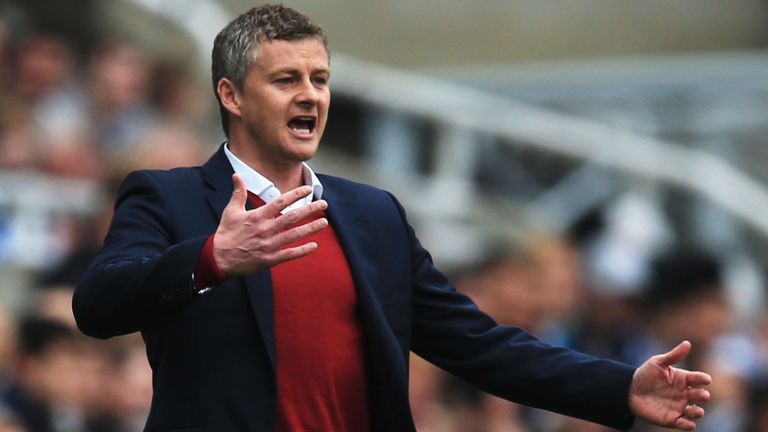Ole Gunnar Solskjaer still faces a mountain. At the end of one of the greatest managerial careers in the history of our beautiful game, Sir Alex Ferguson would walk away from Manchester United, as reigning Premier League Champions. In his 23 years at the club, they would win the league title 13 times… just think about that for a moment. The title win in his last season may have been one of the most impressive, especially looking back at what would happen after his departure.
David Moyes was very much the chosen one, after steadying the ship at Everton and consistently producing top results on a slim budget, many expected him to step into the shoes of his countryman and continue to push United to further success and glory. It wasn’t viewed as a risky appointment, it wasn’t even remotely surprising, it just made sense.
As we all know, Moyes’ tenure at Manchester United did not play out the way we expected, and he was eventually fired after just 10 months later with the club failing to qualify for the Champions League and barely even mustering anything that could be referred to as a title defence. While Ryan Giggs was made interim manager to the end of the season, the club had their eyes on another – Louis van Gaal.
Van Gaal came into Old Trafford with a wealth of experience across the globe, at some of Europe’s best clubs, as well as having spent time in international management. He had brought titles almost everywhere he had gone, and it was expected that he would now be the man to return Manchester United to their rightful position at the top of the table. He didn’t.
Van Gaal would last longer in the hotseat than his predecessor had, returning United to the Champions League in his first season, it was in his second year that things began to unravel. A poor campaign in Europe saw the Red Devils drop out of the Champions League at the group stage, as well as once again falling behind in the Premier League, eventually finishing the season in fifth place despite having spent a ludicrous amount of money on the squad (see Angel Di Maria).

Ole Gunnar Solskjaer gets his chance
An FA Cup victory was not enough to save Van Gaal, and for the second time in three years there was managerial change at Manchester United. This time it was the turn of ‘The Special One’, Jose Mourinho.
Mourinho came into the club on the back of his sacking from Chelsea, after their dire start to their title defence the previous year. Once again, it was widely expected that Mourinho would return the club to glory with the backing of the board, and they certainly splashed the cash in his first season. It wasn’t enough.
United would finish in sixth place at the end of Mourinho’s first season, qualifying for the Champions League after winning the Europa League – a successful season in the eyes of the Portuguese. The following year they would improve their performance in the Premier League dramatically climbing up to second place, though never really challenging their rivals for the title.
Then we move on to this current, 2018/19 season, once again the club were off the pace, not challenging for the title and looking like they weren’t going to make the top four. So it was out with Mourinho, and once again an interim manager was to be installed as the club would wait until the end of the season before making a decision on who they wanted to take the job on a permanent basis.
In stepped the baby faced assassin – Ole Gunnar Solskjaer. More than a few people questioned the decision to appoint their former player as interim manager to the end of the season. While he had experienced some success with Norwegian side Molde, his only managerial job in the Premier League had been far from a success. Captaining the sinking ship that was Cardiff City during their relegation campaign.
More than a few people questioned the decision to appoint their former player as interim manager to the end of the season. While he had experienced some success with Norwegian side Molde, his only managerial job in the Premier League had been far from a success. Captaining the sinking ship that was Cardiff City during their relegation campaign.
Not much was expected, in fact, many people had written the season off for United. The change in the club was incredible, gone was the cloud that had been hanging over Old Trafford since the departure of Sir Alex, the Red Devils were once again playing an attractive brand of football, and the players seemed to be really working for their manager. The first time we had seen that at the club since 2013.
In his first game in charge, United would demolish Solskjaer’s former side Cardiff City, 5-1. It was the first time that a Manchester United had scored five or more goals since Fergie’s last game in charge of the club. It was a stat that would really leave a mark of intent. OGS’ side would go on to reel off six consecutive wins in the league, breaking the long standing club record of Sir Matt Busby for most consecutive wins at the start of a managerial career.
Paul Pogba looks more like the world beater we got used to seeing at Juventus, and the leader that led France to a World Cup victory. Marcus Rashford has regained his spark, returning to the form that saw him break into the United side under Van Gaal, and Jesse Lingard has been an impressive presence in the middle of the park.
With the only loss of his tenure so far coming in the Champions League, to PSG, OGS has really staked his claim for the permanent job. Something that nobody really predicted when he took over the job on an interim basis. Appointing Solskjaer was a risk for the club, with little Premier League experience and results with Molde starting to stagnate slightly, however it is a risk that has paid off significantly. The team are back in the battle for a spot in the top four, and could be one of the favourites to claim that final spot come the end of the season.
The real question now is, should they take yet another risk in giving OGS the full time role? I wouldn’t be surprised if we had to wait until the end of the season to find out.
For more like this, visit our dedicated football page here. Meanwhile, follow us on Facebook for more opinions and analysis right to your timeline.
